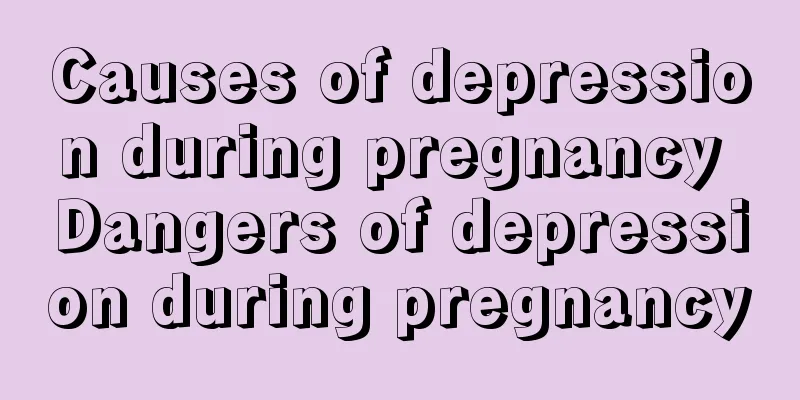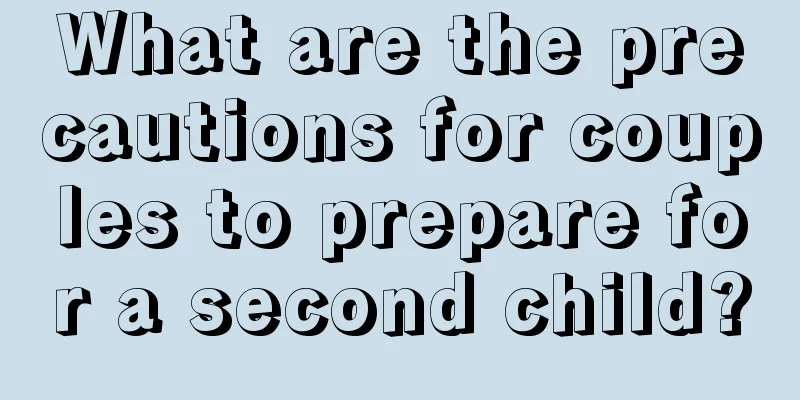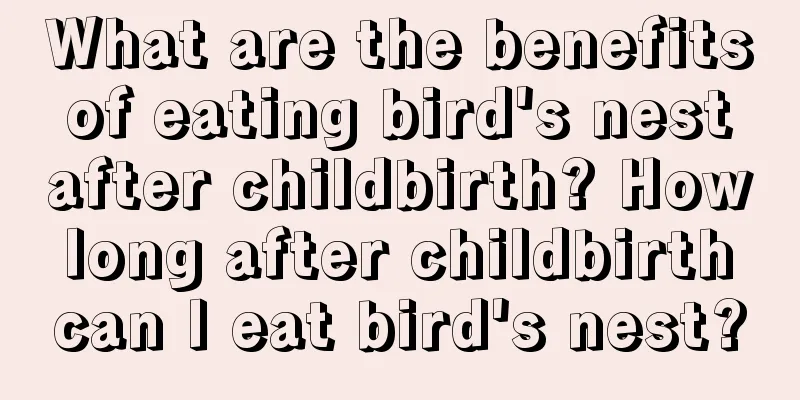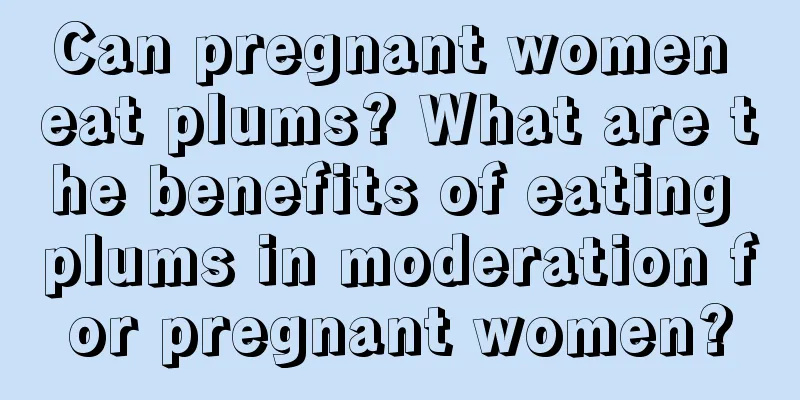Will a baby's constant crying affect his health? Will a baby's constant crying be harmful to his health?
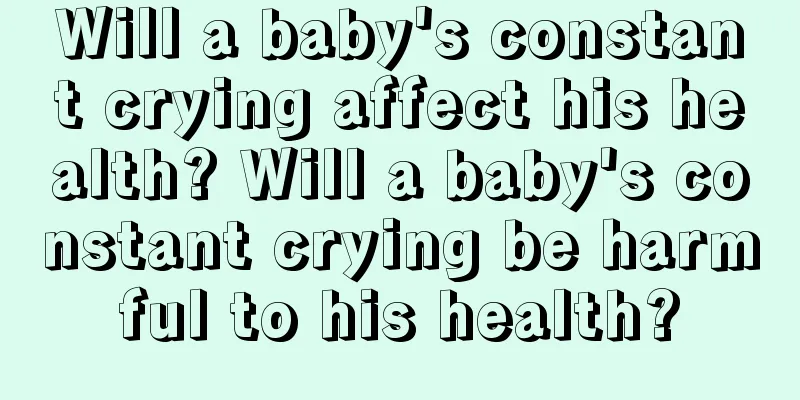
|
Does a baby's constant crying affect his health? Will a baby's long-term crying have any side effects? Today, let's introduce to you whether a baby's crying has any adverse effects on the baby's health. A baby's crying is also a kind of exercise, but will long-term crying affect health? Will the baby's constant crying affect his health?1. Crying and making noises appropriately does have benefits, but continuous crying and making noises is extremely harmful When the baby cries, closing eyes and opening mouth, stretching and flexing arms, and kicking legs is a good fitness exercise. It not only exercises the function of nerve muscles, but also increases lung expansion, increases lung capacity, and is conducive to gas exchange; at the same time, it accelerates blood circulation and enhances metabolism. But the latest research conducted by British parenting expert Dr. Penelope Leigh shows that long-term crying of babies can damage their brain health. This study proves that long-term crying can damage the developing brain of babies and lead to cognitive impairment in the future. In addition, although babies who cry for a long time will eventually stop, it is not because they have mastered the trick of falling asleep alone, but because they are exhausted and no longer have hope of getting help. This kind of disappointed and depressed mood will make them secrete a "depressive hormone", which will leave a psychological shadow on the child. In addition, excessive crying and noisy will seriously affect the sleep quality of family members, causing psychological anxiety and even depression. 2. The culprit behind the baby's excessive crying and noise If the baby cries for an unexplained period of time without infection or trauma and with normal weight gain, and the usual feeding or soothing measures cannot stop it, then you should suspect that it is infantile colic. Since babies do not have the ability to accurately express their physical discomfort, they can only express it with limited body language and crying. If a mother finds that her child cries for a long time and meets the "333" principle: (crying time is more than 3 hours a day, more than 3 days a week, and lasts for 3 weeks or more), she should suspect whether the baby has infantile colic. Is it harmful to let your baby cry all the time?No, the child will not be hurt. On the contrary, they will feel safe. When children know that everything is controlled by their parents, not by them, they will feel safe. In addition, if you want your baby to feel safe, you must be consistent in your approach and try to arrange your baby's life according to the schedule strictly. If you get nervous when your baby cries, your baby will soon know who is in charge of the family. He will develop a habit of crying to get what he wants. However, these children who are in control are more likely to feel insecure when they grow up. Why? Because they don’t actually know what they want or what is good for them. Their parents don’t set boundaries for them, so they feel insecure. In contrast, if the baby knows that his parents will always take care of his needs whether he cries or not, he will feel safe, because although his attitude may change over time, his parents' approach will always be consistent. The end result is that babies who follow a schedule and sleep through the night will no longer cry when they wake up in the morning. Many babies who learn to sleep through the night will not cry when they wake up in the morning, but will start to murmur or make happy sounds. My babies sometimes sing in their cribs when they wake up in the morning, waiting for their family to pick them up. They have had a good sleep and know that their parents will definitely pick them up. I emphasize again that when children know that everything is controlled by their parents, not by them, they will feel safe. 10 reasons why your baby criesThe messages conveyed by a baby's crying can be roughly divided into three types: (1) psychological reasons; (2) physiological reasons; and (3) pathological reasons. Physiological causes 1. Hungry 2. Too hot or too cold 3. Dirty or wet diaper 4. Want to sleep 5. Being frightened Pathological causes Common symptoms that cause babies to cry include: 1. Intestinal colic 2. Flatulence 3. Intussusception Psychological causes 1. Unfamiliar environment or caregivers 2. Ask for a hug |
Recommend
Can pregnant women eat goose meat to supplement protein?
Pregnant women can eat goose meat, which is a hig...
How should pregnant women take care of themselves? The second
Many pregnant women do not have very good physica...
What causes bad breath in infants and young children? 4 major causes of bad breath
Bad breath usually occurs in adults, but rarely i...
What music is suitable for newborn babies?
Music is also a kind of education. It can not onl...
What should I do if my baby has yellow hair? What is the reason for my baby's yellow hair?
The baby's hair is sparse, soft and yellow. M...
Is Blue Moon laundry detergent good for washing underwear? Can Blue Moon laundry detergent sterilize underwear?
When I use Blue Moon to wash clothes, I find that...
Can children with anemia eat donkey-hide gelatin? How to choose milk powder for children with anemia
Anemia in young children is a common phenomenon n...
Can dandelion remove fetal toxins? What can I eat to remove fetal toxins?
Dandelion is a plant that many people like to pla...
What do women need to prepare for pregnancy? What do men need to prepare for their wives' pregnancy?
A baby is an indispensable member of every family...
There are several types of stretch marks. There are mainly two types.
There are two types of stretch marks: one is stre...
What does breast milk taste like? It tastes sweet.
Breast milk is the most suitable food for babies....
Recommended children's sex education picture books Recommended children's sex education books
Children's sex education picture books are a ...
Can low progesterone cause infertility? What are the symptoms of low progesterone?
Progesterone is an important indicator of female ...
How to effectively treat severe postpartum hair loss? What are the causes of postpartum hair loss?
Many pregnant women will experience various physi...
How to protect infants' throats? Seven tips to protect throats
Children's throats are very fragile and need ...




